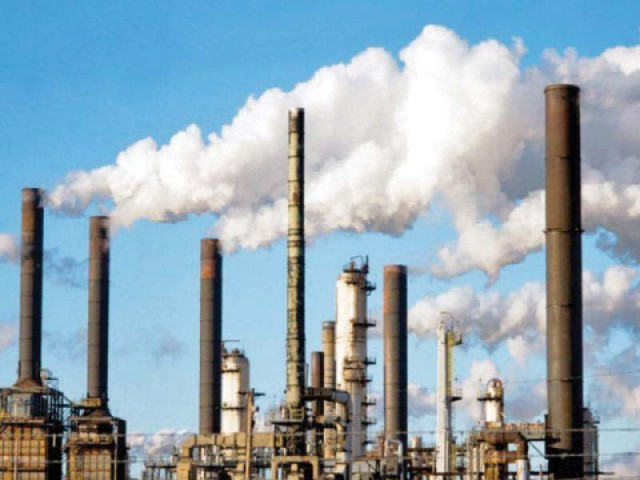Stopping oil adulteration: British firm seeking long-term contract
Company representative offers reduction in fuel marking price in exchange for the extension

Currently, Pakistani refineries are producing kerosene oil without adding any dye, which makes it difficult to detect its mixing with high-speed diesel. PHOTO: FILE
A technical committee, headed by a representative of the Oil Companies Advisory Council (OCAC) and comprising representatives of the Oil and Gas Regulatory Authority (Ogra), domestic refineries and the Hydrocarbon Development Institute of Pakistan, had been constituted to implement the fuel marking programme.
After completion of the bidding process, Authentix was declared the successful bidder. The cost of fuel marking has been quoted up to Rs1.22 per litre for six months on a trial basis.
In a letter sent to the Petroleum Division, Authentix Senior Vice President Sten Bertelsen said a long-term contract would help the company obtain additional data and results from ongoing tests to gain necessary insight and eliminate kerosene mixing.
To avoid monopoly, OGRA calls for re-inviting bids for fuel marking
He said it would send a clear message to the culprits engaged in adulteration that the ministry was committed to eliminating the problem and that the programme was not a one-off testing exercise.
He emphasised that Authentix had very aggressively priced the kerosene marking programme during the competitive bidding. The company is also committed to transferring technology to Pakistan to fight fuel adulteration in the long run.
Bertelsen said Authentix was using the trial period to invest with the goal of a long-term partnership with the ministry, adding that they were willing to reduce the price by 3% after the end of six-month trial.
Currently, Pakistani refineries are producing kerosene oil without adding any dye, which makes it difficult to detect its mixing with high-speed diesel. Under the fuel marking programme, a chemical will be added to kerosene oil to help identify and check adulteration.
The price difference between kerosene oil and high-speed diesel is Rs33.40 per litre, which allows oil barons to mint money by mixing kerosene oil with high-speed diesel.
The fuel marking programme will be run in phases. Initially, kerosene oil will be targeted and later other fuels such as high-speed diesel, light diesel oil and petrol will be covered under the programme.
A senior government official pointed out that annual production of superior kerosene oil at domestic refineries stood at around 140,000 to 150,000 tons for consumption in the country.
The mixing of petroleum products has not only caused a shortage of kerosene oil in the domestic market, but has also hit government revenues on high-speed diesel sales.
He said specifications of kerosene oil had also been revised in line with the latest fuel quality standards following consultation with the oil industry in order to discourage adulteration in petroleum products.
Oil and gas industry regulator Ogra will not participate in the commercial phase of the fuel marking programme, but has agreed to perform its role in the implementation and monitoring stages.
Govt picks UK firm for fuel marking to check adulteration
According to a proposed mechanism, the actual cost of fuel marking may be included in the ex-depot sale price of kerosene oil through the monthly price revision.
The successful bidder has also agreed to offer a 3% price reduction for expanding the programme’s duration beyond the six-month trial period to one year.
Initially, the programme will be implemented for one year which, depending on the results, will be extended with the consent of Ogra or a fresh tender may be invited.
For the deregulated petroleum products, oil marketing companies may be directed to introduce and finance fuel marking from their profit margins, sources added.
Published in The Express Tribune, November 26th, 2017.
Like Business on Facebook, follow @TribuneBiz on Twitter to stay informed and join in the conversation.



















COMMENTS
Comments are moderated and generally will be posted if they are on-topic and not abusive.
For more information, please see our Comments FAQ